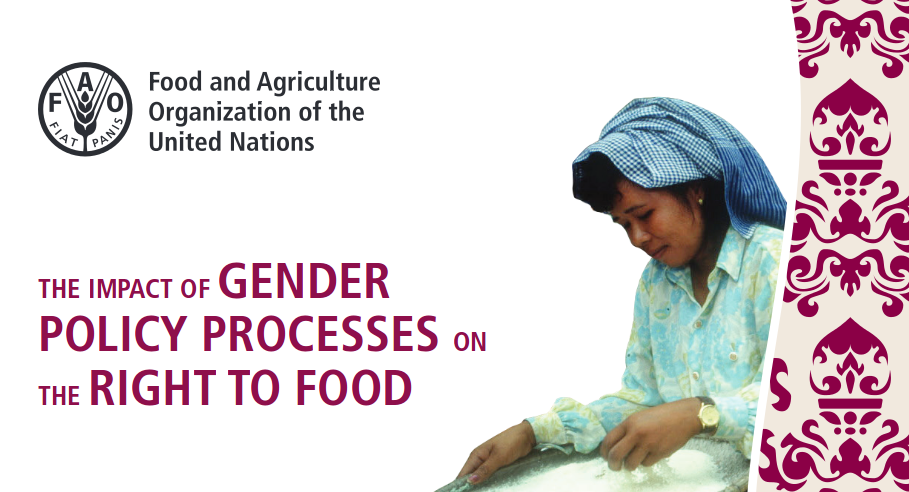FAO Cambodia Case Study: The Impact of Gender Policy Processes on the Right to Food
In April 2016, the Food and Agriculture Organization launched the results of a case study titled “The Impact of Gender Policy Processes on the Right to Food”. The purpose of this study was to identify potential gender-related entry points for the development of activities on…
 In April 2016, the Food and Agriculture Organization launched the results of a case study titled “The Impact of Gender Policy Processes on the Right to Food”.
In April 2016, the Food and Agriculture Organization launched the results of a case study titled “The Impact of Gender Policy Processes on the Right to Food”.
The purpose of this study was to identify potential gender-related entry points for the development of activities on the human right to adequate food in Cambodia.
The summary also provides a short overview of the intersection between national gender policies and the ongoing process of administrative decentralization and reports on the development initiatives and civil society approaches to gender and right to food, by providing, in conclusion, some purposes and recommendations on how gender and right to food could be approached based on the information obtained from them.
The study has been supported by primary data obtained from various stakeholders, including institutional representatives, and representatives of development organizations and civil society. Brief field work was conducted to gather firsthand information from rural women and subnational authorities in charge of gender and food security. The published brief follows a validation workshop held in Phnom Penh, Cambodia, on 22 March 2016. The workshop was attended by the main national stakeholders from national institutions including the Council for Agriculture and Rural Development (CARD), the Ministry of Women’s Affairs (MOWA) and the Ministry of Health. The Under Secretary of State, Mrs. Mom Thany from the Ministry of Agriculture, Forestry and Fisheries, opened and closed the ceremony.
FOOD INSECURITY IN CAMBODIA
Cambodia adheres to human rights principles that constitute the ground for a human rights-based approach (HRBA). These include the International Covenant on Economic, Social and Cultural Rights (ICESCR), the Convention on the Elimination of All Forms of Discrimination against Women (CEDAW), and the Convention on the Rights of the Child (CRC).
The Cambodian government has made a commitment to eliminate hunger and food insecurity. However, despite significant progress in tackling poverty achieved by the country in the last years, a significant part of the population continues to live just above the poverty line, especially in rural areas, with a very thin margin of difference and a high degree of vulnerability. Malnutrition and food insecurity affect in particular women and children. Household headed by women (nearly a fifth of total Cambodian households) usually have smaller plots of land and are more likely to be poor. Despite the high participation of women in the workforce, the majority of them (70 percent) are in vulnerable employment or suffer from poor earnings, difficult work conditions, lack of social security and representation.
Visit FAO to download the brief.